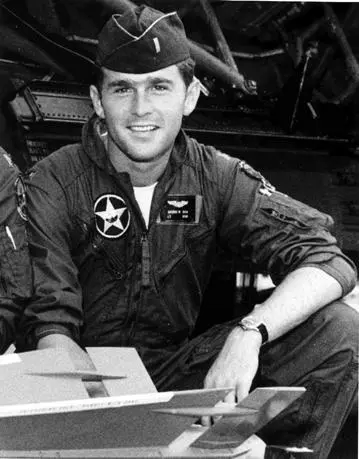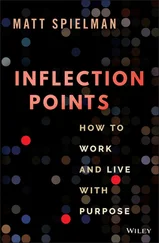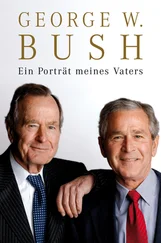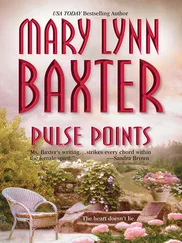
Graduation came at a tumultuous time. Martin Luther King, Jr., had been assassinated in April of my senior year. Race riots followed in Chicago and Washington, D.C. Then, a few days before commencement, my friends and I were driving back from a trip to upstate New York when we heard on the radio that Bobby Kennedy had been killed. Nobody in the car said a word. There was a sense that everything was coming unglued.
For most of our time at Yale, civil rights dominated the campus discussion. By our senior year, another issue weighed on our minds. The war in Vietnam was escalating, and President Johnson had instituted a draft. We had two options: join the military or find a way to escape the draft. My decision was easy. I was going to serve. I was raised by a dad who had sacrificed for his country. I would have been ashamed to avoid duty.
My attitude toward the war was skeptical but accepting. I was skeptical of the strategy and the people in the Johnson administration executing it. But I accepted the stated goal of the war: to stop the spread of communism. One day in the fall of my senior year, I walked by a recruiting station with a poster of a jet pilot in the window. Flying planes would be an exciting way to serve. I checked in with the recruiter and picked up an application.
When I went home for Christmas, I told my parents about my interest in the Air Force. Dad referred me to a man named Sid Adger, a former pilot who was well connected in the aviation community. He suggested that I consider joining the Texas Air National Guard, which had pilot slots available. Unlike members of the regular Guard, pilots were required to complete a year of training, six months of specialized instruction, and then regular flying to keep up their status.
Serving as a Guard pilot appealed to me. I would learn a new skill. If called, I would fly in combat. If not, I would have flexibility to do other things. At that point in my life, I was not looking for a career. I viewed my first decade after college as a time to explore. I didn’t want anchors to hold me down. If something caught my attention, I would try it. If not, I would move on.
This was the approach I had taken to summer jobs. In 1963, I worked on a cattle ranch in Arizona. The foreman was a grizzled fellow named Thurman. He had a saying about well-educated folks he knew: “Book smart, sidewalk stupid.” I was determined not to let that phrase apply to me. I spent other summers working on an offshore oil rig in Louisiana, behind the trading desk of a stockbrokerage house, and as a sporting goods salesman at a Sears, Roebuck. I met some fascinating characters along the way: cowboys and Cajuns, roughnecks and roustabouts. I’ve always felt I received two educations in those years: one from fine schools, and one from solid people.
In the fall of 1968, I reported to Moody Air Force Base in Georgia for pilot training. We started with about one hundred trainees and graduated with about fifty. The washouts were early and frequent. I remember one guy from New York who came back from his first flight in a Cessna 172 looking as green as his flight suit—except for the part on which he had spilled his lunch.
My early experiences in the air were only slightly better. My instructor could smell insecurity, and he did not believe in quiet counseling. On one of my first flights, he suddenly grabbed the yoke, pulled back as hard as he could, and stalled the aircraft. The nose went up, and the plane shuddered. He then shoved the stick forward, and down went the nose. The plane recovered. The trainer had shown me my first stall recovery maneuver. He looked at me and said, “Boy, if you want to be a pilot, you must control this machine and not let it control you.”
I took his advice seriously. I mastered the basics of flying, including loops, barrel rolls, and instruments. When Dad came to pin on my wings, I felt a tremendous sense of accomplishment. After flight school, I moved to Houston, where I learned to fly a fighter jet called the F-102 at Ellington Air Force Base. The F-102 was a single-seat, single-engine air interceptor. When you taxied to the end of the runway, put the throttle in afterburner, and felt the engine kick in, it didn’t matter who you were or where you came from, you had better pay attention to the moment.

During my service in the Air National Guard.
I loved flying, but by 1972, I was getting restless. I was logging my flight hours during the evening or on weekends, and working during the days at an agribusiness. My duties at the office included conducting a study of the mushroom industry in Pennsylvania and visiting plant nurseries that the company had acquired. It was not exactly captivating work.
One day, I got a call from my friend Jimmy Allison, a Midland political operative who had run Dad’s successful campaign for the U.S. House of Representatives in 1966. He told me about an opportunity on Red Blount’s campaign for the U.S. Senate in Alabama. It sounded interesting, and I was ready to move.
My commanding officer, Lieutenant Colonel Jerry Killian, approved my transfer to Alabama on the understanding that I would put in my required hours there. I informed the Alabama Guard commanders that I would have to miss several meetings during the campaign. They told me I could make them up after the election, which I did. I didn’t think much about it for another few decades.
Unfortunately, the record keeping was shoddy, and the documentation of my attendance was not clear. When I entered politics, opponents used the gaps in the system to claim I had not fulfilled my duty. In the late 1990s, I asked a trusted aide, Dan Bartlett, to dig through my records. They showed that I had fulfilled my responsibilities. In 2004, Dan discovered some dental records proving I had been examined at Dannelly Air National Guard Base in Montgomery, Alabama, during the time critics alleged I was absent. If my teeth were at the base, he wisecracked to the press, they could be pretty sure the rest of my body was, too.
I thought the issue was behind us. But as I was landing in Marine One on the South Lawn late one evening in September 2004, I saw Dan’s silhouette in the Diplomatic Reception Room. As a general rule, when a senior adviser is waiting to meet the president’s chopper, it is not to deliver good news. Dan handed me a piece of paper. It was a typewritten memo on National Guard stationery alleging that I had not performed up to standards in 1972. It was signed by my old commander, Jerry Killian. Dan told me CBS newsman Dan Rather was going to run a bombshell report on 60 Minutes based on the document.
Bartlett asked if I remembered the memo. I told him I had no recollection of it and asked him to check it out. The next morning, Dan walked into the Oval Office looking relieved. He told me there were indications that the document had been forged. The typeface came from a modern computer font that didn’t exist in the early 1970s. Within a few days, the evidence was conclusive: The memo was phony.
I was amazed and disgusted. Dan Rather had aired a report influencing a presidential election based on a fake document. Before long, he was out of a job. So was his producer. After years of false allegations, the Guard questions finally began to abate.
I will always be proud of my time in the Guard. I learned a lot, made lifelong friends, and was honored to wear our country’s uniform. I admire and respect those who deployed to Vietnam. Nearly sixty thousand of them never came home. My service was nothing compared to theirs.

Читать дальше













